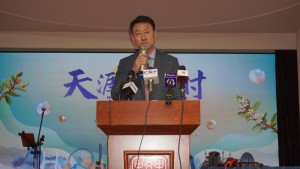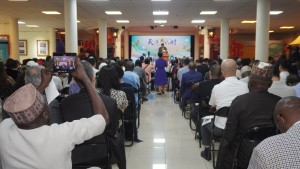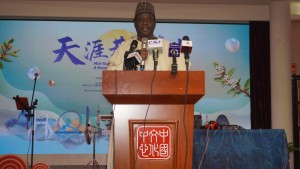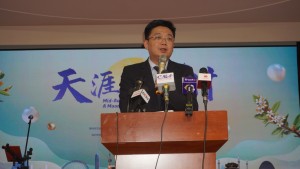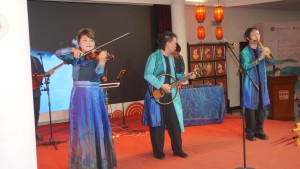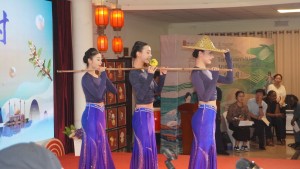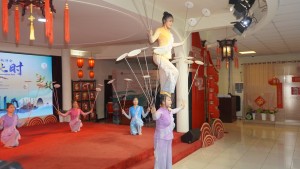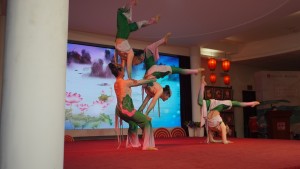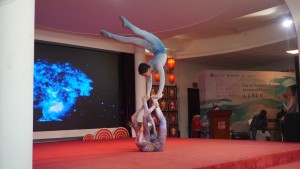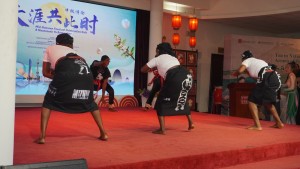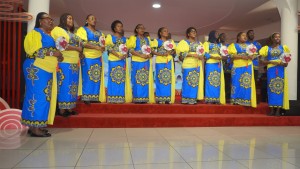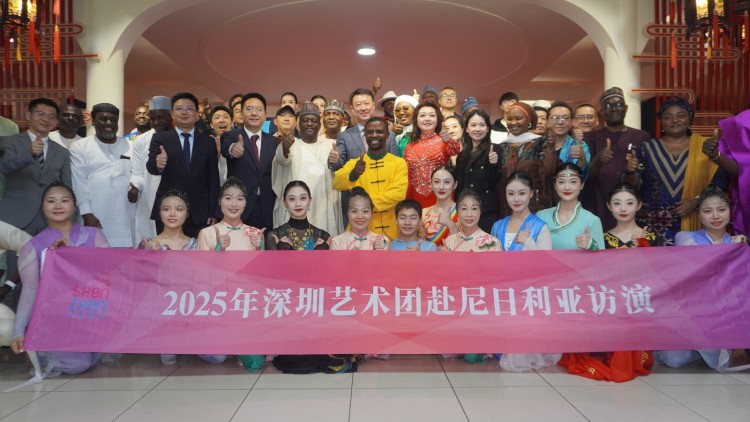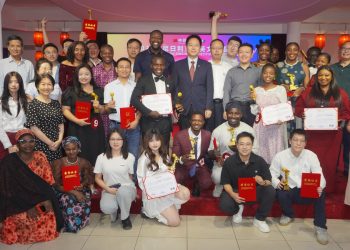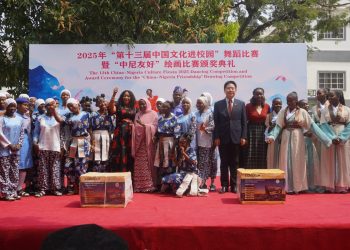The China Cultural Centre in Abuja on Thursday hosted a vibrant celebration of the Mid-Autumn Festival, reaffirming cultural exchange as a vital bridge between Nigeria and China.
The event, themed “A Moonment to Remember,” brought together senior government officials, diplomats, cultural leaders, and members of the Nigerian and Chinese communities. It also coincided with preparations for the National Days of both China and Nigeria, which fall on the same date, October 1.
In his remarks, Chinese Ambassador to Nigeria, Yu Dunhai, highlighted the cultural significance of the Mid-Autumn Festival, which symbolizes reunion, harmony, and blessings. Quoting a classic Chinese poem, he drew parallels between Chinese and Nigerian traditions of family and community.
Yu also praised the visiting Shenzhen delegation for showcasing the vibrancy of modern Chinese culture through opera, dance, martial arts, acrobatics, and fusion music.
“Today is far more than a display of artistry. It is a heartfelt expression of our warmest wishes for China–Nigeria friendship,” he said.
In his remarks, Mukhtar Yawale Muhammad, Permanent Secretary of the Federal Ministry of Arts, Culture, Tourism, and the Creative Economy, affirmed the shared values between both nations.
“The Mid-Autumn Festival embodies the spirit of reunion, harvest, and blessings. These values are not foreign to us in Nigeria. We, too, celebrate our harvests with joy and thanksgiving, and our cultures are replete with ceremonies that express blessings for one another,” he said.
Dr. Muhammad also pointed to the historic coincidence that both Nigeria and China celebrate their national days on October 1, describing it as a powerful symbol of unity and aligned aspirations. He emphasized the role of cultural diplomacy and Nigeria’s creative economy as engines of engagement with China and the wider world.
Delivering remarks on behalf of the Shenzhen delegation, Li Qiangqiang, Deputy Director-General of the Shenzhen Bureau of Culture, Media, Tourism and Sports, described Nigeria as a nation of “extraordinary cultural depth” with rich traditions spanning over 250 ethnic groups and ancient civilizations such as Nok, Ife, and Benin.
Li noted Shenzhen’s rapid transformation from a fishing village into a global hub of technology and culture.
“Shenzhen is a city born of reform, thrived on opening-up, and propelled by innovation. Its cultural vitality blends deep-rooted heritage with the energy of a modern metropolis,” he said.
Li added that the new cooperation between Shenzhen and the China Cultural Centre in Nigeria, established in 2025, marked an important step in advancing the goals of the Forum on China–Africa Cooperation (FOCAC).
He expressed hope that the performances, including excerpts from the dance drama *“Yongchun”, orchestral and choral works, traditional dances, and acrobatics would deepen mutual understanding and strengthen people-to-people bonds.
The event featured cultural performances from the Shenzhen and Nigerian troupes, photo exhibition on Shenzhen’s transformation and the sharing of mooncakes symbolizing reunion and happiness.
See photos below:
